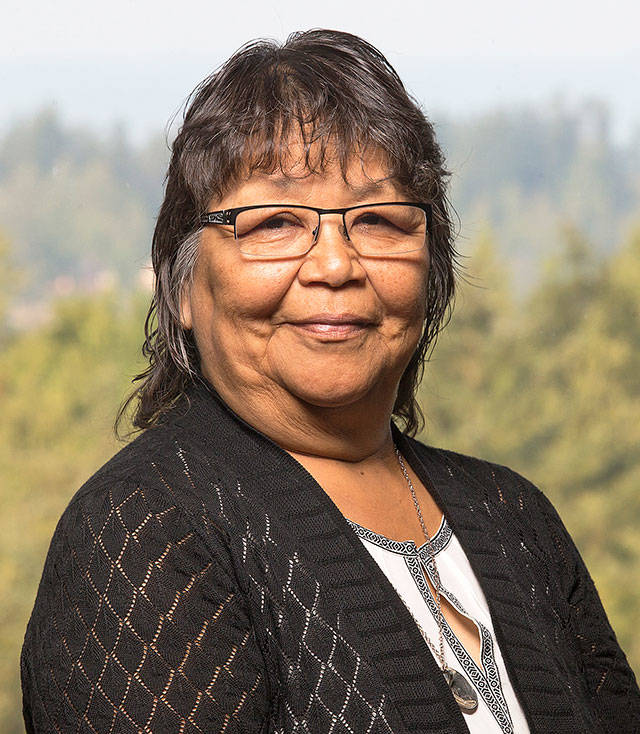TULALIP — Rush-hour snarls are expected to dip when the new overpass at 116th Street NE and I-5 is completed, but another stream of traffic could take a big leap — fish traffic.
When the project is complete, fish also will encounter a more hospitable environment, Tulalip Tribes Chairwoman Marie Zackuse told a meeting of the Marysville Tulalip Chamber on Friday.
“For 50 years the overpass has provided people and cars with passage. Now it will provide passage for fish, too,” she said.
Her remarks were part of a “State of the Tribes” presentation at the chamber’s monthly gathering that touched on the tribes’ history, values and projects.
Among the “fish-friendly” projects is a stormwater treatment system to stop the flow of untreated stormwater and runoff from entering Quil Ceda Creek, a salmon and steelhead stream.
The project, in its final phase, is led by the Tulalip Tribes.
“We approach each construction project with the question, ‘How will it impact fish and fry?’” Zackuse said.
The tribes have taken the financial lead in the $62 million 116th Street project, in cooperation with the Washington State Department of Transportation, the Federal Highway Administration, the U.S. Bureau of Indian Affairs, Snohomish County and Marysville. When completed, the state Transportation Department will retain control of the road.
Zackuse reminded listeners that “even 30 years ago, we struggled to provide food and housing — unemployment was 70 percent.”
The tribes are now one of Snohomish County’s top five employers, with 3,200 tribal and non-tribal workers, according to Economic Alliance Snohomish County.
One of tribes’ most important responsibilities is “ensuring future generations have what they need to be Coast Salish people,” Zackuse said. “The tribes has 4,800 members, nearly half of whom are under 25.”
The tribes provide cash dividends to enrolled members, a total of $72 million in 2015. That’s an average of more than $16,000 per person, according to accountant Todd Menenberg, who took the stand during a federal trial this spring over the state’s and county’s right to collect sales tax at Quil Ceda Village stores.
In 2015, the tribes sued to stop the state of Washington and Snohomish County from collecting tax on sales to non-Indians at non-tribal stores. The tribes argued that they created Quil Ceda Village largely on their own, with the U.S. government providing the only significant help. The U.S. Department of Justice intervened to support the tribes’ case. Menenberg was hired to bolster the state’s defense.
Zackuse did not comment on the case, which awaits a judge’s decision. There is no timetable for that.
She praised the tribes for their foresight after Congress passed the first Indian Gaming Act in 1988. That same year, the Tulalip Tribes turned half of the bingo hall it built in 1983 into a casino.
In 1993, the bingo hall was replaced by Quil Ceda Creek Casino at 6410 33rd Ave. NE. In 2003, the tribes opened the prosperous Tulalip Resort Casino.
Now, the Tulalip Tribes are in the process of constructing a new $140 million casino and a 150-room hotel to replace the existing Quil Ceda Creek Casino, which is expected to open next year, she said.
Janice Podsada; jpodsada@heraldnet.com; 425-339-3097.
Talk to us
> Give us your news tips.
> Send us a letter to the editor.
> More Herald contact information.

























